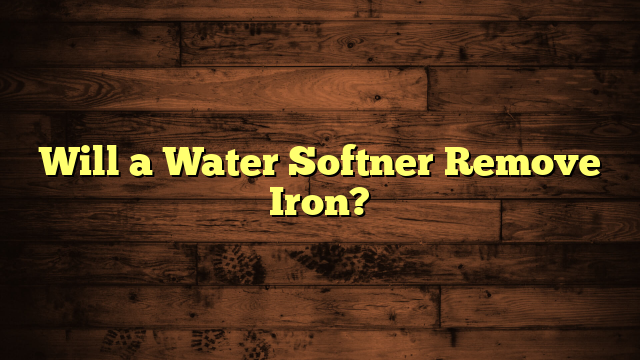Which Water Softner Salt Has the Least Amount of Chemicals?
If you're looking for water softener salt with the least chemicals, consider evaporated salt or solar salt. These options have higher purity levels and fewer additives compared to rock salt, which often contains impurities. Evaporated salt is particularly reliable for softening and contains minimal unnecessary chemicals. Solar salt, derived from evaporated seawater, offers a cost-effective solution with low impurities and excellent solubility. By opting for these purer choices, you'll enhance both your health and the environment. Want to explore additional options and tips on water softener salts? There's plenty more to uncover to make the best choice for your needs.
Key Takeaways
- Evaporated Salt: This type has the highest purity with minimal impurities and is effective for softening without additional chemicals.
- Solar Salt: Produced from evaporated seawater, it contains fewer impurities and dissolves well, contributing to lower chemical exposure.
- Potassium Chloride: A low-sodium alternative that is beneficial for health with fewer harmful additives compared to traditional salt options.
- Ingredient Label Inspection: Always check product labels for additives to choose salts with the least chemicals and ensure better water quality.
- Natural Source Preference: Opt for salts derived from natural sources, as they typically have lower chemical content and are better for health and the environment.
Understanding Water Softener Salt
When you look into water softener salt, you'll discover it plays an essential role in treating hard water. This salt is vital in the water softening process, where it helps to remove minerals like calcium and magnesium that make water hard. By doing so, it enhances the benefits of water, making it gentler on your skin, appliances, and plumbing.
Using water softener salt not only improves the quality of your water but also extends the lifespan of your appliances. When you soften your water, it reduces the buildup of scale in pipes and fixtures. This means fewer clogs and lower maintenance costs over time.
Moreover, soft water requires less detergent for cleaning, which translates to lower expenses and a more eco-friendly lifestyle.
You'll find that the type of water softener salt you choose can affect the efficiency of this process. Consequently, selecting a product with fewer chemicals can be beneficial for both your home and the environment.
Types of Water Softener Salt
Choosing the right type of water softener salt is just as important as understanding its role in water treatment. You have a few options to evaluate: rock salt and solar salt, each with its own benefits and drawbacks.
Rock salt is the most natural form of water softener salt. It comes directly from mines, and while it usually contains impurities, it can be a cost-effective choice for those looking to minimize chemical exposure.
However, be aware that these impurities can lead to residue buildup in your system.
On the other hand, solar salt is produced by evaporating seawater. This process results in a purer form of salt, with fewer impurities than rock salt.
If you're concerned about chemicals and want a cleaner alternative, solar salt might be the better option for you. It dissolves well in water softeners and typically leads to less maintenance.
Ultimately, the choice between rock salt and solar salt depends on your priorities—cost, purity, or maintenance.
Whichever you choose, make certain to monitor your water softener's performance to guarantee ideal results.
Chemical Additives in Salt
Many water softener salts contain chemical additives that can impact both your health and the environment. When selecting a salt, you should consider the level of chemical purity it offers. Some salts may include additives like anti-caking agents, which can affect the overall quality and safety of the product.
These additives may not only detract from the salt's effectiveness but can also introduce unwanted chemicals into your home.
Understanding the additive effects is vital. For example, certain additives might make the salt easier to handle but could lead to potential health risks when used over time. If you're concerned about minimizing your chemical exposure, look for products that emphasize low or no additives.
Opting for high-purity salts often means fewer chemicals in your water supply and a cleaner environment. Remember, the fewer the additives, the better the overall impact on your health and the ecosystem.
Benefits of Low-Chemical Salts
Opting for low-chemical salts offers numerous benefits that enhance both your health and the environment. By choosing these salts, you not only promote a safer household but also contribute to a more sustainable planet. Here are some key advantages you can enjoy:
- Health Benefits: Low-chemical salts minimize exposure to harmful additives. This is especially important if you have sensitive skin or respiratory issues, as fewer chemicals mean less irritation and reduced risk of allergic reactions.
- Cost Savings: Using low-chemical salts can lead to long-term savings. Although they might've a higher upfront cost, their effectiveness can reduce the frequency of maintenance and repairs on your plumbing and appliances, ultimately saving you money.
- Environmental Impact: By reducing chemical runoff, you help protect local water sources and ecosystems. Low-chemical salts are often more biodegradable, meaning they break down more easily and leave a smaller footprint.
Top Low-Chemical Salt Options
When it comes to selecting the best low-chemical salt for your water softener, you'll find several excellent options that prioritize safety and effectiveness.
One popular choice is potassium chloride, a low sodium alternative that works well in softening water without introducing harmful chemicals. This option not only reduces sodium levels in your water but also provides essential potassium, which can benefit your health.
Another eco-friendly option is solar salt. This salt is harvested through evaporation from seawater, minimizing environmental impact while delivering effective water softening.
It typically contains fewer additives than traditional salt, making it a safer choice for both your family and the planet.
If you're looking for something even more natural, consider using evaporated salt. This option is made through a process that removes impurities, resulting in a cleaner product that's still effective for water softening.
Comparing Salt Brands
When you compare salt brands for your water softener, it's essential to look at the natural options available.
You'll want to analyze the chemical content to guarantee you're choosing the least processed product.
Understanding these factors can help you make a more informed decision that aligns with your needs.
Natural Salt Options
Choosing the right water softener salt can greatly impact your home's water quality and efficiency. If you're looking for options with minimal chemicals, weigh natural salt alternatives derived from natural mineral sources. These options not only soften your water but also contribute to a healthier household.
Here are three natural salt options to weigh:
- Solar Salt: Harvested through evaporation from seawater, solar salt is a natural choice that contains fewer additives than traditional salts.
- Rock Salt: Mined from underground deposits, rock salt is a more organic salt alternative that typically has minimal processing and fewer chemicals.
- Evaporated Salt: Produced by evaporating saltwater, this option usually boasts higher purity and lower levels of impurities, making it a reliable choice for water softening.
When selecting your natural salt option, look for brands that emphasize their commitment to organic practices.
Chemical Content Analysis
Exploring natural salt options lays the groundwork for a deeper understanding of how different brands measure up regarding chemical content. When evaluating various water softener salts, you'll want to contemplate their chemical composition.
Look for brands that prioritize minimal additives and maintain high purity standards. For instance, certain brands of evaporated salt boast a nearly 100% purity level, meaning fewer impurities and chemicals.
In contrast, other brands may contain anti-caking agents or additives, which can alter the chemical makeup of the salt. These additives might make the salt less effective in softening water or introduce unwanted substances into your system.
Take the time to read labels and compare the ingredient lists carefully. You should also research third-party testing to verify that the salt meets established purity standards.
This will give you confidence in your choice, knowing you're selecting a product that aligns with your health and environmental values. By focusing on chemical composition and purity standards, you can make informed decisions and choose a water softener salt that minimizes chemical exposure while maximizing effectiveness.
Environmental Impact of Salt
Salt, a common household item, can have significant environmental repercussions when used in water softeners. The process of salt production often involves mining or evaporating seawater, both of which can lead to habitat destruction and pollution.
When you use water softeners, the salt is dissolved and released into the water supply, which can contribute to increased salinity in natural water bodies, harming aquatic ecosystems.
Here are three key environmental impacts of salt:
- Habitat Degradation: Excessive salt in waterways can alter the natural habitat, affecting fish and plant life.
- Soil Salinization: When salt runoff reaches the soil, it can lead to salinization, which reduces soil fertility and disrupts local agriculture.
- Water Quality Issues: Increased salinity can degrade drinking water quality, posing risks to human health and environmental sustainability.
To minimize these impacts, consider the source of the salt you choose. Opting for more environmentally friendly options can help reduce the ecological footprint of your water softening practices, promoting a healthier planet.
Tips for Choosing Salt
When choosing salt for your water softener, look for pure options that minimize unwanted chemicals.
Always check the ingredient labels to guarantee you're selecting the best product for your needs.
This way, you can maintain your home's water quality while being mindful of the environment.
Look for Pure Options
Choosing the right water softener salt can make a significant difference in the quality of your water and the efficiency of your system. To guarantee you're selecting a product that minimizes chemicals, look for pure options that are both effective and environmentally friendly.
Here are three tips to help you in your search:
- Consider Pure Mineral Options: Look for salts that contain minimal additives and are derived from natural sources. Pure mineral options often provide better performance without the extra chemicals.
- Explore Organic Salt Alternatives: If you're concerned about the environmental impact, organic salt alternatives can be a great choice. These are typically harvested using methods that maintain the integrity of the minerals without chemical processing.
- Research Brand Transparency: Choose brands that openly share information about their sourcing and processing methods. This transparency can help you identify products that align with your goal of reducing chemical exposure.
Check Ingredient Labels
Understanding what goes into your water softener salt is essential for making an informed decision. Start by checking the ingredient labels on each product. You'll want to look for options that prioritize label transparency, revealing all components clearly.
Some brands may hide additives or chemicals that aren't necessary for softening your water, so being diligent here pays off.
When examining the labels, pay attention to ingredient sourcing. Opt for salts that derive their ingredients from natural sources rather than synthetic ones. This can greatly reduce the number of chemicals in your water softener salt. For instance, sea salt or evaporated salt crystals often contain fewer additives compared to other types.
Additionally, don't hesitate to research the brand's reputation. A trustworthy company will often provide information on their sourcing practices and any potential contaminants.
If the label isn't clear, consider reaching out to the manufacturer for clarification. Ultimately, choosing water softener salt with minimal chemicals starts with a careful review of ingredient labels, ensuring you select a product that aligns with your health and environmental values.
Frequently Asked Questions
Can I Use Regular Table Salt in My Water Softener?
You can't use regular table salt in your water softener. It can cause salt compatibility issues and isn't designed for that purpose. Consider table salt alternatives specifically formulated for water softeners to guarantee peak performance.
How Often Should I Change My Water Softener Salt?
You should check your water softener salt levels every 4 to 6 weeks. Regular water softener maintenance guarantees peak performance, so monitor salt usage frequency closely and refill as needed to maintain soft water efficiency.
What Happens if I Run Out of Water Softener Salt?
If you run out of water softener salt, your water hardness increases, leading to potential buildup in pipes and appliances. To avoid this, regularly check levels and follow maintenance tips for ideal performance.
Is Low-Chemical Salt More Expensive Than Regular Salt?
When you compare costs, low-chemical salt often tends to be pricier than regular salt types. However, consider the long-term benefits, as investing in quality salt can enhance your water softener's efficiency and lifespan.
Can Water Softener Salt Expire or Go Bad?
You might think water softener salt lasts forever, but it can expire. Look for expiration signs like clumping or discoloration. Proper storage conditions, away from moisture, can help maintain its effectiveness longer.
Conclusion
To summarize, choosing a low-chemical water softener salt can greatly improve your water quality and reduce your environmental impact. Did you know that some brands can contain up to 20% additives, which may not only affect your health but also harm your plumbing? By opting for a purer salt option, you're not just softening water; you're also making a smarter, healthier choice for your home and the planet. So, make sure to read labels before you buy!







